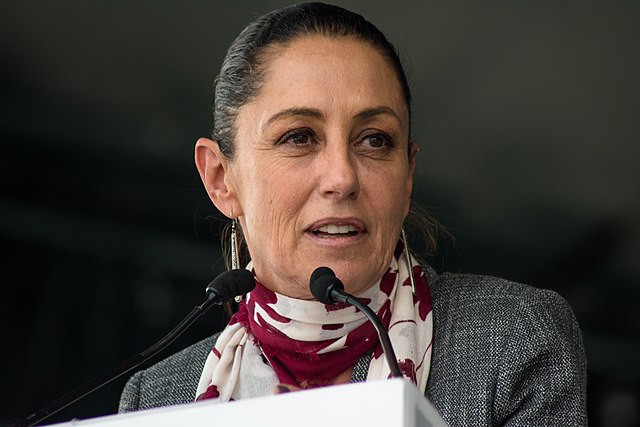Claudia Sheinbaum is set to become Mexico's first female president after a historic election victory, marking a significant milestone in the nation's political landscape.
Sheinbaum, a former mayor of Mexico City and a prominent figure in the Morena Party, secured the presidency with a decisive lead, according to the National Electoral Institute's statistical sample. "I will become the first woman president of Mexico," Sheinbaum declared at a celebration in downtown Mexico City, emphasizing the collective effort behind her victory. "We've all made it, with our heroines who gave us our homeland, with our mothers, our daughters, and our granddaughters."
Sheinbaum's win represents not only a gender breakthrough but also a continuation of the leftist policies championed by her mentor, outgoing President Andrés Manuel López Obrador. Sheinbaum has pledged to maintain a strong governmental role in addressing economic inequality and providing a robust social safety net, much like López Obrador. "Of course, I congratulate Claudia Sheinbaum with all my respect who ended up the winner by a wide margin," López Obrador said. "She is going to be Mexico's first woman president in 200 years."
The electoral authority's sample showed Sheinbaum securing between 58.3% and 60.7% of the vote, while her main opposition candidate, Xóchitl Gálvez, garnered between 26.6% and 28.6%. Jorge álvarez Máynez followed with between 9.9% and 10.8%. This victory ensures that Sheinbaum's Morena Party will hold majorities in both chambers of Congress, further solidifying her mandate.
In her concession speech, Gálvez, a tech entrepreneur and former senator, stressed the importance of accountability. "I want to stress that my recognition of Sheinbaum's victory comes with a firm demand for results and solutions to the country's serious problems," she said.
Sheinbaum's background in science, with a Ph.D. in energy engineering, sets her apart from her predecessors. Her scientific approach was particularly evident during her tenure as mayor when she implemented a rigorous COVID-19 testing regime and enforced health measures that contrasted with the federal government's more relaxed stance.
Despite her scientific and less combative demeanor, Sheinbaum inherits a country grappling with high levels of violence and crime. She has promised to expand the National Guard and continue López Obrador's strategy of addressing social causes of crime, though she has been clear that her approach will not involve "iron fist" tactics. "We will promote a strategy of addressing the causes and continue moving toward zero impunity," Sheinbaum stated during her final campaign event.
Sheinbaum's victory also marks a cultural milestone as she becomes the first Jewish leader of the predominantly Catholic country. Her political philosophy remains deeply rooted in leftist principles. "For me, being from the left has to do with guaranteeing the minimum rights to all residents," she told the Associated Press last year.
Observers are keen to see how Sheinbaum will differentiate herself from López Obrador. Ivonne Acuña Murillo, a political scientist at Iberoamerican University, suggests that Sheinbaum may adopt a less combative stance towards other branches of government and the media. "It appears she's going to go in a different direction," Murillo noted.
Despite the challenges ahead, Sheinbaum's election is a historic moment for Mexico, promising a new era of leadership that builds on López Obrador's legacy while potentially forging its own path. Her victory speech resonated with a message of unity and continuity, emphasizing the collective effort and historic significance of her win.




